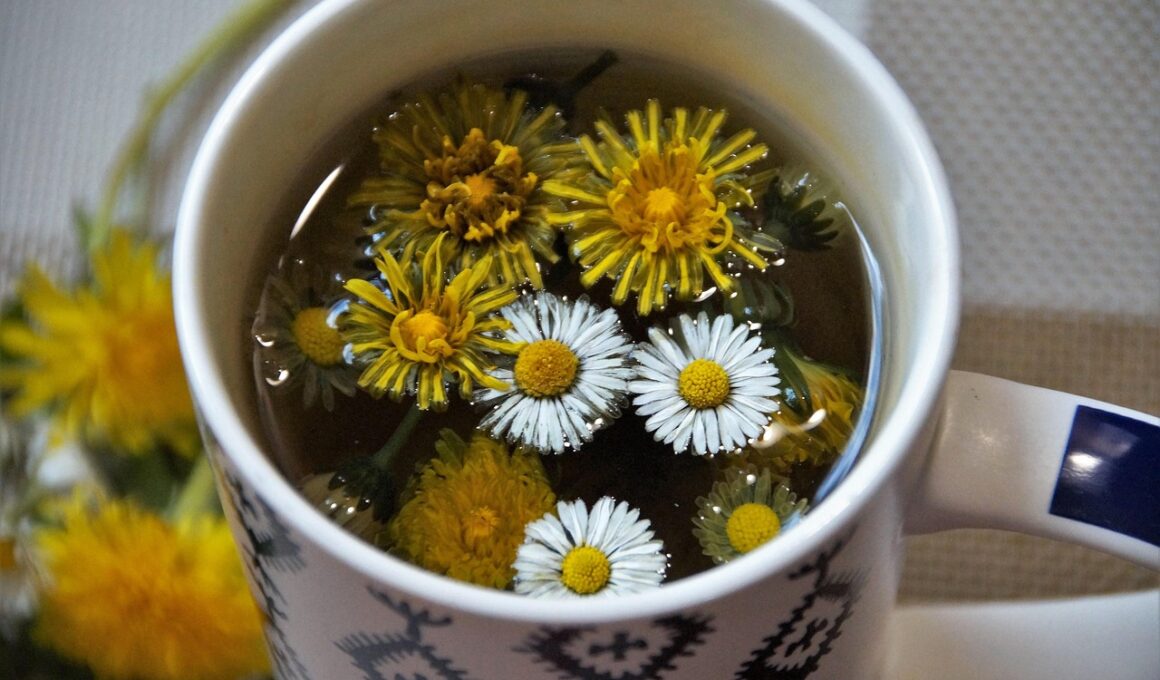Are There Any Proven Benefits of Detox Tea? Exploring the Facts
Detox tea has become increasingly popular as part of health and wellness trends. Many people consume these teas with the hope of detoxifying their bodies and shedding unwanted weight. However, it is essential to separate myths from facts when discussing detox tea. Commonly, individuals believe that detox teas can help eliminate toxins and reduce bloating. Some brands claim that their products promote metabolic enhancement and fat burning, leading to impressive weight loss results. Nevertheless, scientific evidence supporting these claims is limited. Herbal ingredients found in detox teas may offer benefits, but many of these claims lack robust study backing. Most detox teas do contain laxatives, which can lead to temporary weight loss due to water loss, not fat loss. This raises questions around whether relying on these teas is a sustainable or healthy method for weight management. Furthermore, long-term consumption can lead to side effects. Usually, one will benefit more from a comprehensive approach, including a balanced diet and regular exercise. Proceed with caution when considering detox teas, as knowledge about these beverages could significantly impact health outcomes. Understanding the ingredients is crucial for any consumer.
The Myths Surrounding Detox Teas
Debunking common myths about detox tea can aid consumers in making more informed health choices. One significant myth is that drinking detox tea can purify the body naturally. In reality, kidneys and liver mainly handle detoxification. These organs efficiently filter out toxins without external assistance. Another myth claims that detox teas can result in considerable weight loss. While these teas may promote short-term loss due to water weight, they are not effective for long-term success. Additionally, many believe that detox teas can improve skin health or boost energy levels significantly. While staying hydrated is essential for skin health, no specific tea guarantees miraculous improvements. Ingredients like senna leaf, found in some detox teas, can have adverse effects, including cramping and diarrhea. Many companies advertise these products as safe, but such claims often lack clinical evidence. Therefore, consuming whole foods and maintaining hydration is always better. Understanding that your body already has built-in detoxification systems is key to reconsidering the necessity of detox teas altogether. A more balanced diet and exercise is far more effective than relying solely on detox beverages.
The idea that detox teas are a cure-all solution can mislead consumers into neglecting better health practices. In reality, these teas may provide temporary relief from bloating or mild digestive distress, but they should not replace a healthy diet. Most detox teas are high in caffeine or other stimulants, which can lead to negative side effects. These may include jitteriness, increased heart rate, and even disrupted sleep patterns. Moreover, detox teas containing diuretics may exacerbate dehydration, compounding issues rather than resolving them. Some detox teas contain added sugars and flavors that can detract from their intended health benefits. It’s crucial to read labels to ensure that you are not inadvertently consuming unhealthy additives. Lifelong wellness should center around balanced meals, adequate hydration, and observations of physical health indicators. Those considering detox teas for specific health goals should consult healthcare professionals for tailored advice. Giving up detox teas in favor of whole foods and approaching wellness holistically can have much more significant benefits for overall health. It might be time to consider alternatives that align more closely with nutritional science.
Potential Benefits of Ingredients in Detox Teas
While many detox teas are misunderstood, certain ingredients can offer genuine health benefits. For instance, green tea is often included for its antioxidant properties and may provide metabolic support. Additionally, herbal elements, such as ginger or peppermint, can aid digestion and soothe stomach issues. Both of these ingredients have extensive scientific backing for their health benefits. Drinking herbal teas can help you stay hydrated and may even act as a complement to a balanced diet. Furthermore, many detox teas contain vitamins and minerals from natural ingredients, which can contribute positively to health. For example, hibiscus tea is rich in vitamin C, supporting the immune system. Similarly, dandelion root can promote liver health, bolstering detoxification processes. However, it’s crucial to note that herbal ingredients are most beneficial when included in a comprehensive eating strategy rather than consumed through concentrated tea forms. Drinking a variety of teas could also provide satisfactory health benefits without the adverse effects associated with detox teas. Always consider the context in which these herbal ingredients are consumed to optimize health benefits effectively.
In addition to the health benefits of certain herbal ingredients, moderation is essential when deciding to include detox teas in one’s health routine. Consumers should approach detox tea brands with scrutiny, as many manufacturers may prioritize marketing over factual representation. Transparency in ingredient sourcing can help ascertain the quality and effectiveness of a detox tea product. Diverse herbal blends might suit various health needs, but it’s crucial to focus on whole, unprocessed foods as primary health sources. Furthermore, consumers often overlook the importance of reading product labels for potential hidden additives or allergens. Choosing organic, non-GMO ingredients can minimize the risk of consuming harmful chemicals. Consulting with a healthcare professional about suitable herbal remedies can provide further guidance on health matters. Although detox teas can offer refreshment and hydration, it is vital to integrate them responsibly into a broader nutritional vision. Learning about herbal properties and their interactions may help individuals choose the most effective products. Ultimately, putting wellness first necessitates a more comprehensive strategy that includes diverse options and avoiding excessive dependency on any single solution.
Consulting Professionals for Detox Advice
Seeking professional guidance can be beneficial for individuals looking to pursue detox practices. Registered dietitians and nutritionists possess the expertise to provide personalized recommendations. They often emphasize the importance of whole foods, hydration, and balanced diets. Understanding individual health conditions can lead to more informed advice tailored to personal needs. Those considering detoxing may also inquire about natural detox methods, like fasting or juice cleansing, that fit into a broader health strategy. Consulting professionals can clarify myths that have circulated about specific detox practices, aiding in dispelling unfounded fears. Due to the subjective nature of health, professional opinions can offer perspectives that differ from popular media. Moreover, personalized health approaches are usually more effective than generalized weight-loss strategies. Notably, education about nutrition and detoxification can empower individuals to make informed lifestyle choices. In the long run, this knowledge fosters greater autonomy in managing health. The health landscape is ever-evolving, making it essential to stay abreast of new research and evidence. Integrating guidance from experts into personal practices is paramount for achieving lasting results.
As one navigates the world of detoxing and related products, recognizing facts and myths plays a vital role in healthier living. Understanding the limitations and attributes of detox teas can help consumers avoid unnecessary risks. Analyzing ingredients and researching their effects may clarify their actual benefits, leading to safer choices. Most importantly, it’s advisable to adopt a more comprehensive and holistic approach to health, focusing on whole foods, regular exercise, and mental well-being. Replacing reliance on detox teas with sustainable habits will generally yield better outcomes over time. Finding a balance that works for individual lifestyles is crucial. Rather than
investing solely in detox teas or other fad diets, consider incorporating small changes that support health. Practicing mindful eating and listening to one’s body can also enhance well-being and promote sustainable habits. It is vital to remember that health is a journey, not a destination. Achieving wellness generally involves consistent efforts rather than quick fixes. Detox teas may psychologically encourage one to drink more fluids, but that alone is not sufficient for achieving wellness. Instead, aiming for nutrient-dense foods while ensuring adequate hydration offers a safer and more effective means of maintaining health. Be cautious about the marketing techniques that many companies employ, promising immediate results. In essence, consider how detox practices can fit into a broader, well-rounded health strategy, emphasizing informed choices and sustainable practices. Elevating awareness surrounding the limitations of detox teas can empower consumers towards better health. Analyzing what constitutes true wellness will aid in discerning which strategies best align with personal health goals.


